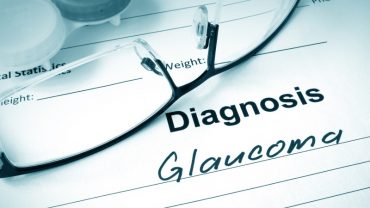Health Benefits of Various Types of Coffee
For years we’ve had it drummed into us that caffeine = bad; that a morning cup of coffee can actually do more harm than good.
The truth is that, in moderation, coffee can have many health benefits, but that doesn’t mean racing down to the nearest Starbucks for a 470 calorie grande java chip frappuccino.
High calorie, high sugar, high-fat coffee drinks (the java chip frap contains a whopping 18 grams of fat per 16 ounces) are undoubtedly playing some sort of role in the obesity crisis that’s sweeping the west.
While it is, of course, irresponsible to blame this crisis on the fast food industry, we do have to acknowledge the strong association between the greater availability of unhealthy options, and ever-growing waistlines.
To say that coffee is good for our health is a massive generalization because it all comes down to the type of beans that are used, the preparation of the coffee, as well as the type of drink that’s produced from these beans (and not forgetting the addition of extras such as creams, sugars, flavored syrups, and whatever other toppings fancy coffee shops care to add to their concoctions these days).
However, it is widely accepted that some types of coffee, and some types of coffee preparation, can provide a significant health boost, and actively encourage the body to continue working efficiently and effectively.
Why is Coffee Good for Us?
Just like tea, coffee is considered to be a ‘non-nutritive’ beverage.
This means that the drink itself fails to provide any beneficial or necessary nutrition for life.
There is simply not enough vitamins, minerals, or calories present in coffee for it to provide any sort of nutrition to the body.
Low-calorie sweeteners like Stevia are also considered non-nutritive as they do not provide any sort of energy.
So if coffee lacks in vitamins, minerals, and energy, how can it benefit health?
It’s all about looking beyond vitamins and minerals, and instead of looking at other components of coffee which could really make a huge difference.
The Health Benefits of Coffee
So the big question is: what exactly is it that makes one specific variation or preparation of coffee healthier — or unhealthier — than another?
Well, there isn’t actually one aspect which means that we can categorically, and with confidence, say ‘drink this coffee, not that coffee’.
It’s not as if we can all simply switch our morning latte to an Americano and reap the benefits.
However, what we can do is look at the different coffee varieties and their various preparations and learn more about the potential health benefits of these specific types of coffee.
Let’s take a look at what the experts say on the matter.
Coffee Preparation Methods
Believe it or not, the way that you prepare your coffee can significantly affect how much caffeine makes it into your cup.
For example, brewed coffee is understood to be one of the most caffeine-rich coffees, with an estimated 135mg of caffeine per 8oz of coffee.
In contrast, filtered coffees and percolated coffees typically have much less caffeine, with 112mg and 74mg per 8oz respectively.
High-caffeine coffees are generally understood to have greater health effects than their lower caffeine counterparts.
Most of us know that caffeine is a common and very popular stimulant drug which helps to reduce tiredness and makes us feel more awake and more alert, but it actually does a lot more than meets the eye.
In fact, caffeine is thought to have powerful neuroprotective properties, and could even help to reduce the risk of conditions such as Dementia and Alzheimer’s Disease.
This is why coffee preparation methods which retain caffeine content are often preferred in terms of benefits to human health.
And if we’re specifically looking at human health, it’s important to note that many types of coffee — with the exception of Greek coffee and Turkish style coffees — should not be prepared unfiltered.
There is a reason why we filter coffee. Actually, there’s two!
Firstly, filtering coffee to remove grounds helps to create a smooth cup which many of us find more palatable.
Secondly, filtering coffee removes potentially harmful substances, such as cafestol and kahweol, which have both been linked to rises in cholesterol.
Coffee Styles
There are many different ‘styles’ of coffee to enjoy, but two of the most exotic are Turkish-style coffee and Greek-style coffee.
What’s the difference? Honestly, not much.
In fact, like Turkish/Greek delight and Turkish/Greek yogurt, there’s really not much — if any — difference between the two.
Both are unfiltered, and are brewed using a small, metal ‘briki’.
The result is a very rich, very thick, and very strong coffee that is served with the fine grounds still present in the cup for a truly unusual and unique texture.
Why is this particular style of coffee understood to be so good for our health?
Studies have found that those who consume Greek-style coffee seem to have a better endothelial function than those who regularly consume other styles of coffee.
The endothelium is the lining of the blood vessels, and it’s responsible for a number of different roles in the body, ranging from immune health to a healthy heart.
If endothelial function begins to diminish, the body is unable to control many aspects of day-to-day health.
Interestingly, due to the numerous functions that the endothelium performs, it is said that good endothelial function is key to a long and healthy life.
Is this really true?
While we can’t say for sure, what we do know is that inhabitants of the Greek island of Ikaria, where the above study was undertaken, typically live 10 years longer than those living elsewhere in western Europe.
While this extended life expectancy could be due to the mountains, or the wine, we have to consider the coffee, too!
Bean Varieties
From Bourbon to Colombian, and from French Mission to Hawaiian Kona, there are many different coffee bean varieties to choose from.
Each has its own distinct flavor, but which of the varieties is best for health?
A number of studies have examined coffee’s effects of fibrinolysis, which is the process of breaking down blood clots in the body to prevent them from becoming problematic and leading to conditions such as deep vein thrombosis, and experts agree that there are 3 beans that really work.
According to studies, the Blue Mountain arabica beans from Jamaica, Chinese Yunnan beans, and Kilimanjaro beans from the fertile volcanic soils in Tanzania are amongst the best at reducing the risk of blood clots.
In fact, research actually shows that these three bean varieties are between 29 and 35 times more efficient at stimulating fibrinolysis processes than controls.
Experts believe that the high caffeine content of these beans plays a role, with the effects largely reversed with consumption of decaf drinks.
It is generally agreed that regular coffee consumption can be associated with a 30% lower risk of developing thrombosis compared to zero coffee consumption.
What’s interesting, however, is that even the experts don’t seem to fully understand why, with one study claiming that ‘it is not possible to determine the precise biological mechanisms underlying this observation from epidemiologic data’.
The assumption is that the antioxidant polyphenols found in coffee help to reduce inflammation in the body.
Bean Status
In most cases, coffee cherries picked from the plants are roasted to produce coffee beans.
These beans are then ground and mixed with water to create a rich and invigorating cup of coffee.
However, roasting is not the only possible fate for coffee cherries, and it is possible to purchase coffee in its raw state.
Raw coffee is certainly nothing like its roasted counterparts.
Tough to eat, raw coffee is usually sucked to release its unique flavor, or can also be soaked overnight to create a very mild-flavored ‘coffee water’.
Why consider adding raw coffee to your diet?
Because raw coffee contains higher levels of green coffee extract (also known as GCE), than roasted coffee beans.
This is because significant amounts of GCE are lost during the roasting process.
GCE which has been specifically isolated from the coffee cherry is commonly marketing as a weight loss supplement, and studies have found a noticeable decrease in overall body fat percentage when participants have been prescribed GCE over a placebo product.
The big question we need to be asking is: why is GCE believed to be so good for long-term weight management?
The answer is all down to the specific compounds found in unroasted coffee beans.
Unroasted coffee beans contain chlorogenic acids, which is shown to reduce visceral fat and body weight.
It does this by changing how much fat the body absorbs from foods, and it is understood that GCE doses between 0.5% and 1.0% can be very effective at reducing weight in obese individuals.
Roasting Conditions
Arabica coffee beans are typically roasted in one of three ways: a ‘Medium’ roast is created from 10 minutes at 230 degrees; a ‘City’ roast is created from 12 minutes at 230 degrees, and a ‘French’ roast is created from 15 minutes at 230 degrees.
While tastes vary, and some palates may prefer one roast over another, in terms of health it is generally accepted that a ‘Medium’ roast is the best.
That’s because a shorter roasting time minimizes the loss of phenols, which are understood to have significant health benefits.
Plant-based phenols are an excellent dietary source of antioxidants.
Antioxidants not only help to reduce oxidative stress in the body but also help to fight dangerous free radicals.
The health benefits of antioxidants are incredibly diverse, assisting with everything from joints and mobility to eye health, and from heart health to aging.
Because coffee is such a popular beverage not only in the United States but also across the globe, it is often said to be the world’s biggest dietary source of powerful antioxidants.
Believe it or not, some researchers over the years have actually argued that coffee is a better dietary source of antioxidants than fruits and vegetables!
Are they correct? They could well be!
It is suggested that just 3 – 5 cups of coffee per day can provide up to 605 of your daily recommended antioxidant intake.
There are a number of different antioxidants present in coffee, including trigonelline (known for its antibacterial properties), quinine, melanoidin, and phenols including Hydroxycinnamic acid.
Is Coffee Good for Everyone?
A question that we should all be asking now is: if certain types and preparations of coffee can have such massive and positive effects on health, should we all be having a big Cup O’ Joe when we get up in the mornings?
The answer may surprise you: no.
For many people, coffee can be hugely beneficial, but for some, it is possible that this popular caffeinated beverage could do more harm than good.
That’s why it’s always best to check with your doctor if you’re planning to make changes to your day-to-day diet.
Coffee can be great, but it is not a miracle drug that works for everyone.
In fact, coffee can interfere with the efficacy of some medications, including antifungal drugs, thyroid medications, antibiotics, and antidepressants.
It is also important to limit coffee intake during pregnancy, as high amounts of caffeine have been shown to increase the risk of miscarriage and stillbirth.
For pregnant women, and those with underlying health conditions, coffee does hold the potential to, unfortunately, do more harm than good.
Even in otherwise healthy people, it is still important to make sure that you’re drinking coffee responsibly.
Too much caffeine can result in nervousness and jitters, so it’s important to stick to the old adage of ‘everything in moderation’.
The Food & Drug Administration (FDA) states that 400mg of caffeine per day (the equivalent of 4 to 5 standard cups) is safe, but remember that caffeine is also present in a range of other foods, too, including, jelly candies, gum, and even waffles!
Drink coffee responsibly.
FDA Compliance
The information on this website has not been evaluated by the Food & Drug Administration or any other medical body. We do not aim to diagnose, treat, cure or prevent any illness or disease. Information is shared for educational purposes only. You must consult your doctor before acting on any content on this website, especially if you are pregnant, nursing, taking medication, or have a medical condition.
HOW WOULD YOU RATE THIS ARTICLE?






